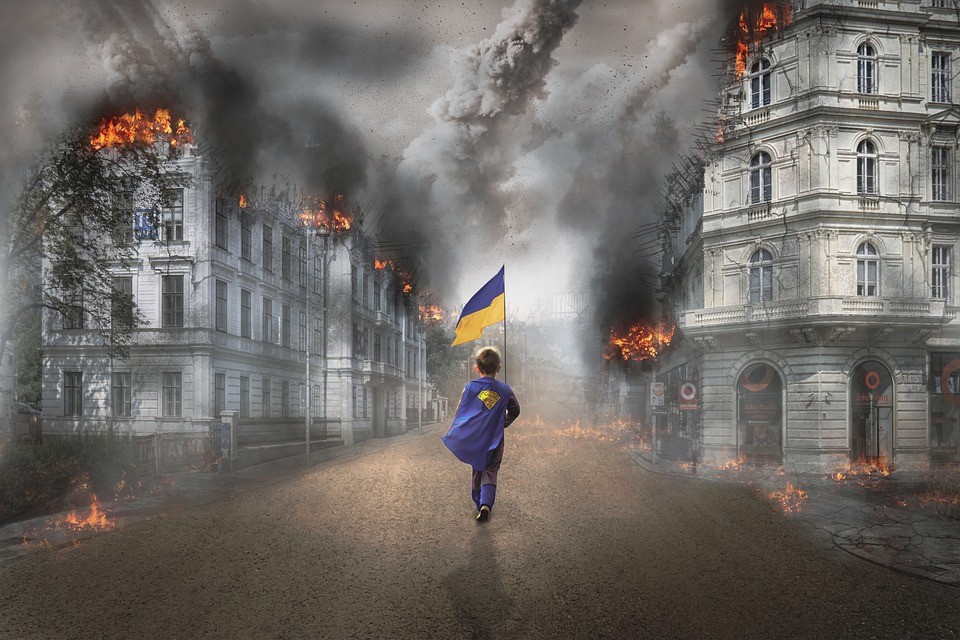The world is facing an impossible path to peace in Ukraine as long as Vladimir Putin, or a like-minded successor, is leader of the Russian Federation without Western intervention. This month the war in Ukraine passed its 18-month point. What can’t be overlooked is that this conflict is linked closely to the outcome of the Russo-Georgian conflict that began in August 2008. At the time there was heavy artillery fire in the small villages of South Ossetia, controlled by Russian forces since 1992, according to Pavel Baev of the Jamestown Foundation. Tanks reached the area just outside the Georgian capital of Tbilisi, before pulling back a week later to Tskhinvali. French President Nicolas Sarkozy met with Russian President Dmitry Medvedev in Moscow to negotiate a ceasefire, while US Secretary of State Condoleezza Rice held talks with Georgian president Mikhail Saakashvili to convince him to sign an agreement. The Kremlin then recognized Abkhazia and South Ossetia as “independent states.” It was swift and with the aid of Western leaders settled in favor of Moscow’s retention of Georgian territory. Those events encouraged and charted the policy roadmap for Putin in Ukraine.
Georgy Kobaladze, writing in Svoboda, says that “…the war between Russia and Ukraine explains many of the Kremlin’s technologies and true intentions that were less obvious in 2008 during the war against Georgia.” Baev adds that immediately after the Georgian war, drastic military reforms were launched in Moscow intended to turn the Russian army into a combat-ready force capable of engaging in dynamic multi-domain operations in modern wars. This was followed by the rapid deployment of special forces and airborne troops to Crimea in early 2014 and was viewed as positive proof of success in that modernization.
What the war in Ukraine reveals is that a gap exists between the political ambitions of Kremlin leaders and the ground truth. Russia’s military machine is designed for fast offensive maneuvers but lacks the ability to sustain a protracted war. The Russian General Staff simply did not plan for a high-intensity long war in Ukraine. This is evident in the failed march on Kiev in early 2022 and today in Russia’s Black Sea fleet’s poor performance in defending itself against recent naval drone attacks. After Georgia, Russian military commanders ignored significant factors such as the quantity and quality of the country’s reserves, despite the limited mobilization of Russian troops needed to hold its defensive lines and for offensive tactical operations around Kupyansk. Moving closer to this year’s September 10 elections, with drone attacks more frequent deep inside Russia, the High command is even more anxious about upsetting the population, according to Baev.
Domestically Putin must also contend with the Russian business elite who continue to endure strict personal sanctions this fall. Forbes reports that as of August 11, Mikhail Fridman, who ranks ninth in the ranking of the richest businessmen in Russia at $ 12.6 billion, German Khan with an estimated $8.2 billion, Kuzmichev at $6.4 billion, and Aven at $4.2 billion, all have had their assets block as “sanctioned persons.” US citizens are also prohibited from doing any business with them and the Russian Union of Industrialists and Entrepreneurs (RSPP), the country’s largest business association. Putin is laying his hopes for disunity inside the United States on the upcoming 2024 presidential election, wishing it spreads conflict among the Western powers. Putin is also encountering challenges with Turkish President Recep Tayyip Erdogan, who is keen to host Russian President Vladimir Putin and persuade him to return to the abruptly canceled “grain deal.”
During the Georgian war in 2008, Erdogan was cautious, seeking primarily to ensure that the Baku–Tbilisi–Ceyhan oil pipeline remained intact, and that Batumi was off-limits to Russian intervention. Today his main goal in the Caucasus is set on “strengthening its alliance with Azerbaijan, and Russia’s dominance over the region was damaged in the fall of 2020, when Armenia was defeated in the Second Karabakh War,” according to the Russian publication Kommersant. In a Svobada blog last week, one writer suggested that ceasefires have proven unreliable in managing conflict and that “Georgia feels compelled to minimize the risks inherent to the “hybrid peace” with Russia,” with Moscow’s maintaining military groupings in Abkhazia and South Ossetia.
Baev says this risk avoidance translates not only into abstention from condemning Russia’s aggression against Ukraine but also into profiteering from the war by keeping trade channels open for sanctioned goods and Russian tourism in Georgia. He adds that various business connections with Russia inevitably involve the export of corruption, which distorts Georgia’s democratic institutions and compromises its official course set on transatlantic integration. “Instead, rapprochement with China has been cultivated, and the recent week-long visit of Prime Minister Irakli Garibashvili culminated with a meeting with President Xi Jinping and the signing of a treaty on strategic partnership.”
The Georgian war illustrates the long-term consequences of Russia’s heavy-handed military actions intended to dominate neighboring states and restore the Russian Empire. At the same time, it also indicates that even minor Western support for the regime in Tbilisi can deter the Russian military from further annexation of Georgian provinces. Ukraine is better prepared going into the fall season to stand up to Russian forces. With various types of assistance from the international community, Kyiv’s prospects for defeating Russian imperialism and militarism in Europe remain a realistic goal.
Daria Novak served in the U.S. State Dept.
